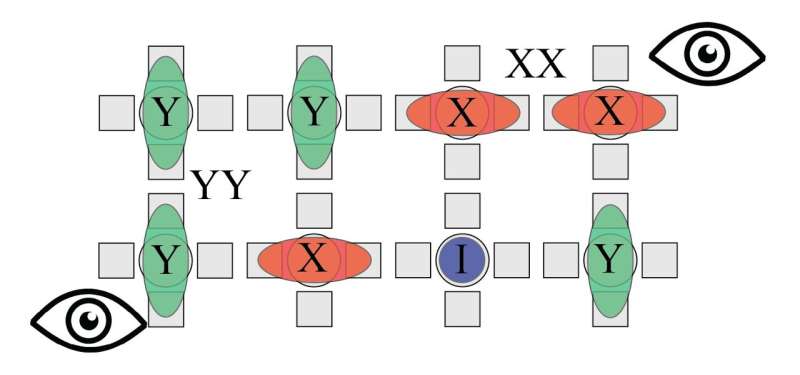Science
New Single-Spin Qubits Pave the Way for Advanced Quantum Processors

Researchers from QuTech and Delft University of Technology have developed a groundbreaking type of qubit that could enhance the scalability of quantum processors. This innovation, detailed in a paper published in Physical Review Letters on November 20, 2025, focuses on individual hole spins confined in semiconductor nanostructures, allowing for manipulation using baseband electrical signals.
Quantum computing harnesses the principles of quantum mechanics, enabling the resolution of complex computational tasks beyond the reach of classical computers. Unlike classical bits, which exist in binary states, qubits can occupy multiple states simultaneously, thanks to their capability to exist in superpositions. Traditional quantum processors often rely on semiconductor quantum dots, which can trap individual charge carriers, but the manipulation of these qubits using high-frequency electrical signals has posed significant challenges.
One of the main issues with high-frequency signals is that they can introduce interference effects, known as crosstalk, resulting in unintended interactions between nearby qubits. This complication, along with the heat generated during operations, complicates the scaling process of quantum processors.
To address these challenges, the team led by Maximilian Rimbach-Russ has designed a new qubit, termed GS2, that simplifies operations significantly. Rimbach-Russ explains, “The goal of our study was to make quantum computing hardware simpler and more practical from an engineering point of view.” The GS2 qubit eliminates the need for fast, synchronized control signals typically required to manage the energy differences between qubit states. Instead, it maintains stability by keeping its two states nearly identical in energy, effectively “freezing” the motion of the qubit until an operation is initiated.
This breakthrough means that operations can be executed simply through short electrical pulses, without the need for complex microwave signals or precise timing mechanisms. According to Rimbach-Russ, “Simple and short electric pulses are sufficient to universally control a quantum processor made of such qubits.” This advancement significantly accelerates the operational speed of quantum processors and provides an ideal foundation for scaling.
Importantly, the GS2 qubits are based on semiconductors, which means they can be fabricated using existing electronics manufacturing processes. As the team progresses towards developing a full-scale quantum processor utilizing this new architecture, Rimbach-Russ acknowledges the ongoing challenges, particularly concerning the variability inherent in semiconductor materials.
“My team and I are constantly developing and improving designs and operational techniques, while our colleagues enhance the material and device quality,” he notes. Although the qubits have yet to be experimentally demonstrated, their potential for revolutionizing quantum computing is substantial.
The work of Rimbach-Russ and his colleagues marks a significant step in making quantum computing technology more accessible and practical, paving the way for advancements that could redefine computational capabilities in the future. As they continue their research, the implications of this work could have far-reaching effects on fields reliant on complex computations, from cryptography to materials science.
-

 Technology5 months ago
Technology5 months agoDiscover the Top 10 Calorie Counting Apps of 2025
-

 Technology2 weeks ago
Technology2 weeks agoOpenAI to Implement Age Verification for ChatGPT by December 2025
-

 Health3 months ago
Health3 months agoBella Hadid Shares Health Update After Treatment for Lyme Disease
-

 Health3 months ago
Health3 months agoAnalysts Project Stronger Growth for Apple’s iPhone 17 Lineup
-

 Health3 months ago
Health3 months agoErin Bates Shares Recovery Update Following Sepsis Complications
-

 Technology5 months ago
Technology5 months agoDiscover How to Reverse Image Search Using ChatGPT Effortlessly
-

 Technology3 months ago
Technology3 months agoElectric Moto Influencer Surronster Arrested in Tijuana
-

 Technology2 months ago
Technology2 months agoDiscover 2025’s Top GPUs for Exceptional 4K Gaming Performance
-

 Technology5 months ago
Technology5 months agoMeta Initiates $60B AI Data Center Expansion, Starting in Ohio
-

 Technology5 months ago
Technology5 months agoRecovering a Suspended TikTok Account: A Step-by-Step Guide
-

 Health5 months ago
Health5 months agoTested: Rab Firewall Mountain Jacket Survives Harsh Conditions
-

 Lifestyle5 months ago
Lifestyle5 months agoBelton Family Reunites After Daughter Survives Hill Country Floods





















